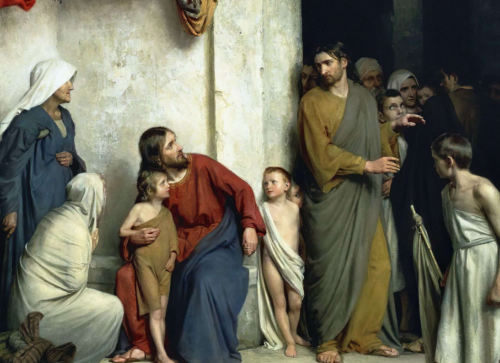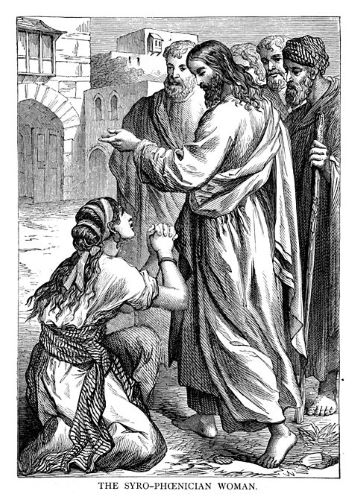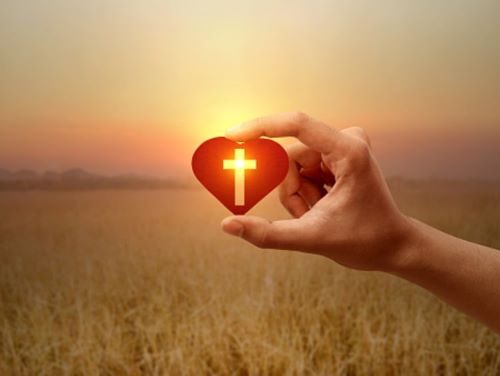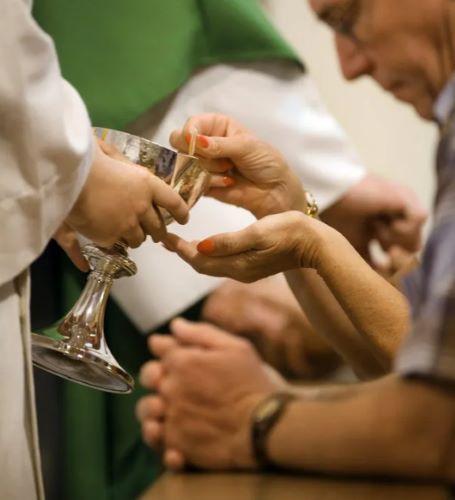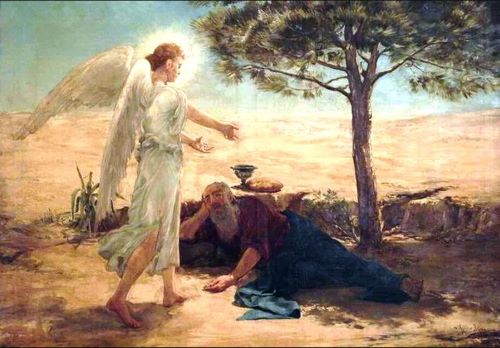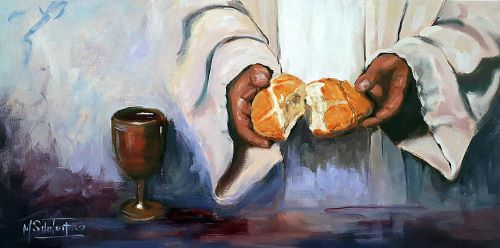Timeless Historical Truth
Year C
Acts 9:1-20
Psalm 30
Revelation 5:11-14
John 21:1-19
May the words of my mouth O God… speak your truth…
We know that when Jesus taught… he often told parables… stories which centered on things that were part of daily life… and about which he knew… sheep and shepherds… vineyards and wine… sowing and reaping… lakes and fishing… stories that he either made up… or which he adapted… in order to make a point… in order to teach about God… like the parable of the seeds sown in the four kinds of soils… the parable of the Unforgiving Servant… the parable of the Laborers in the Vineyard… and whether these and the many other parables which Jesus used to teach… were literally true… that is… whether you could have filmed them with a video camera… or whether they were made up… they still conveyed capital T truths about God… about us… and about the Kingdom… Grace… and Judgment…
John Dominic Crossan… who’s a former Irish-American Catholic priest… a New Testament scholar… and a student of early Christianity… was a prominent member of the Jesus Seminar… organized in 1985… this group of 150 lay and ordained biblical scholars sought to renew the quest for the historical Jesus… that is… to review each of the sayings and deeds attributed to Jesus… and determine which of them were likely authentic… to feather out the underlying truths contained in these sayings and deeds… and to find more symbolic truths… especially in those things that Jesus really did say and do… and one of the things that Crossan said… and I’m paraphrasing here only slightly… is that it’s not that ancient people told literal stories… and we’re now smart enough to take them symbolically… which many of us are… but that some of the stories they told were symbolic stories… and we now take too many of them literally…
As a modern example… if I say that my heart is bursting with joy… that’s not literally true… but it has a deeper truth that you can all understand… if I say… they were inundated with a tidal wave of data… we know what that means even though there was no water involved… if I say that the Cirque de Soleil performance blew my mind… well… if that really happened… I would hardly be able to say anything about it afterwards…
So part of the discernment we’re called to do… part of our Christian journey… is to pay attention not only to what Jesus says and does… but to the underlying messages which transcend time and space… to the lessons which apply to all of humanity… so that it becomes easier for us to see that the Gospel stories weren’t only for… and aren’t only about… what happened to those people way back then… but that their message is also for and applies to all of us now…
If today’s Chapter 21 had not been written… if John’s Gospel ended with Chapter 20… it would have been enough… because Chapter 20 ends this way…
Now Jesus did many other signs in the presence of his disciples… which are not written in this book. But these are written so that you may come to believe that Jesus is the Messiah… the Son of God… and that through believing you may have life in his name… that would have been a good ending… but today’s passage is an epilogue… summarizing the previous twenty chapters to help ensure we get the message… there’s even sufficient evidence for some scholars to have speculated that someone other than John added it on after the fact… but regardless… as Thomas Troeger (Yale Divinity School) wrote… it awakens one flashback after another of what took place earlier in the drama… so that themes… insights… and scenes from the full story keep replaying themselves…
And so as we read that Jesus appears at the Sea of Tiberias… and feeds the disciples with bread and fish… reminds us of John 6:1-14… when on the shores of the same lake he blessed five loaves and two fish and fed a crowd of five thousand… this reassures us that Christ’s abundant generosity doesn’t belong only to the past… but that he continues to bless and feed all of us…
We read that that night they caught nothing… but then… when Jesus tells them to cast their nets over the right side of the boat… they caught one hundred fifty-three fish… and we might be reminded that in none of the Gospels do the disciples ever catch anything without Jesus’ help… but we may wonder… why one hundred fifty-three… is it literally true… did someone actually count them… or does this number represent something else… and I have to tell you… there are at least a dozen explanations for this according to esoteric numerology… for example… it was thought at that time… that there were only 153 species of fish in all the world… so the disciples’ catch signifies that people of every class and time… would be saved through the Gospel… alternately… and you’ll like this… the Greek philosopher Pythagoras was associated with catches of fish… and he had calculated… and I’ll go slow… that 153 is the denominator… of the closest known fraction… to the square root of three… and this was also the ratio of a fish shape drawn between two overlapping circles which are centered on each other’s circumference… and the numerology explanations go on from there…
Today’s text tells us that the disciples failed to recognize Jesus when… on the beach… he called out to them… and we may remember that Mary mistook Jesus for the gardener… and we may think… Oh… that was Mary’s problem… she was so overcome with grief… but then we also need to remember that after being raised… Jesus appeared to the disciples in the Upper Room… behind locked doors… not once but twice… so we may need to ask ourselves… how confident are we… that we’ll be able to recognize Jesus when he appears to us… in the guise of someone else…
When we’re reminded that Jesus invites them to breakfast… and feeds them bread and fish cooked over a charcoal fire… we may be reminded of Maundy Thursday… when they shared a meal at Table… and so this early morning meal reveals another truth… that what we call the Last Supper was not the final meal Christ ate with the disciples… and because of that… we realize that he continues to share in the fellowship of the church… and continues to nourish us in the Eucharist…
And finally… Jesus asks Peter three times… Do you love me… the first two times that Jesus asks this… the Greek word that he uses is agape… and the first two times that Peter replies… the Greek word that he uses is phileo… now agape… refers to love in a social justice or moral sense… phileo… is simply to be a friend to someone… so the first two times… Jesus is asking Peter… if he loves Jesus enough to be transformed… to become deeply and morally motivated… to feed his sheep… to take care of them… maybe even to sacrifice something for them… the third time… both Peter and Jesus… use phileo… perhaps Jesus realizes that Peter is struggling with getting there… and so Jesus loves Peter where he is… just as he loves us where we are…
But perhaps even more significant than this… is that Jesus invites Peter three times… to undo Peter’s threefold denial of Jesus which Peter did… also by a charcoal fire in the courtyard of the high priest… in John 13:38b… Very truly, I tell you, before the cock crows, you will have denied me three times…
Troeger continues… that if what we remember from this Gospel more than anything… is Peter’s unfaithfulness… then this epilogue reminds us that far more important than Peter’s denials… is the grace of Christ… the divine willingness to engage and entrust the ministry to someone whose life so far… has been marked by impetuosity and denial… that we’re not to reduce Christ… and the wonders of his ministry… to a story in the past… something that happened long ago… and to others… this epilogue bookends John’s prologue… and reminds us about the vitality of God’s Word… the light shines in the darkness… and the darkness did not overcome it… this epilogue reassures us… that our own darkness… will not overcome the light of Christ within us… and this Truth… transcends all of time… and all of space…

